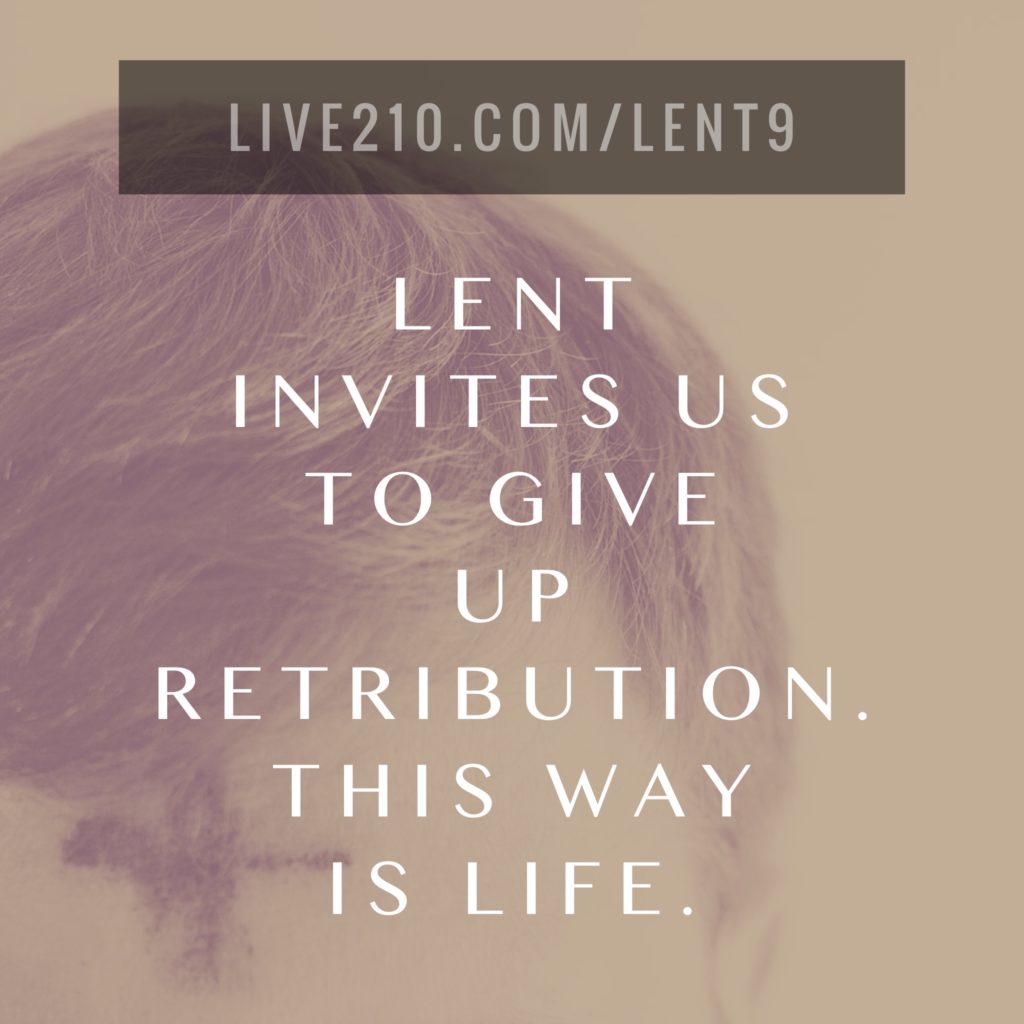6 min. to read.
Today is the 9th day of Lent. Today’s scripture is Matthew 18:21-35, a teaching and parable about forgiveness. Sounds great, but it’s not as simple as it sounds.
Peter asks Jesus how often he should forgive someone who repeatedly “sins against him.” Peter suggests maybe seven times? I expect he thought this a generous offer. Jesus’ responded, “Nope. How about seventy times seven.” That’s a lot!
Then follows a parable about a servant who was forgiven an overwhelming debt by his master. Later that same servant came across another servant who owed him a bit of money. He demanded payment. The debtor couldn’t pay, so the first servant had the debtor thrown into prison. Some of his peers saw this and were disturbed (of course!) and told their master. The master hauled the first servant back in and reinstated the entire overwhelming debt and threw him into prison until He could pay it. (Not sure how you pay a debt while in prison.)
Taken separately, these two episodes paint a confusing picture of forgiveness.
First, Jesus seems to say, “just keep on forgiving.” That sounds very compassionate, but immediately our minds go to all the reasons why that’s a terrible idea. What about toxic people who will continually take advantage? What about situations of abuse? What about leaders in the church who violate trust and then tell members they have to forgive? Doesn’t a commitment to unending forgiveness open us up to every kind of abuse and violation?
Second, the parable mentioned forgiveness, but when you follow the plot, it doesn’t seem like it’s about forgiveness at all. The first servant is forgiven a massive debt, but when he tries to collect the trivial debt he is owed, his original debt is reinstated. Seems to me that means he wasn’t really forgiven in the first place. If someone holds forgiveness over your head, expecting particular behavior in response, that’s not forgiveness. It’s a transaction, a contract with behavioral stipulations.
The “moral of the story” we often extract from this parable—if you don’t forgive others, God will reinstate your debts and punish you—makes forgiveness conditional. Is that what Jesus meant?

One of the most helpful readings of this passage I’ve ever found comes from Brian Zahnd. He points out a fascinating connection that opened up a deeper understanding for me. Back in the first interaction, Peter offers forgiveness up to seven times. Jesus escalates that to seventy-times-seven. Turns out, those numbers aren’t unique to this conversation.
In the early part of Genesis, there’s a sequence of etiological stories. Etiological stories explain the origin of things. Among them, we find the story of Lamech, the son of Cain. Why do we hear about him? Well, He made a vow. He brashly declared that if anyone were to injure or violate him, he would seek vengeance on them, not seven times, but seventy-times-seven times! Lamech demonstrated his power with the threat of escalating violence.
Now, get this! In the Septuagint, this phrase is identical to the words Jesus uses in Matthew. The Septuagint was the only Greek translation of Hebrew scripture at the time of Jesus and the early church. It’s the ”Bible” they would have been familiar with. It seems quite possible that Jesus is taking Lamech’s oath of retribution and subverting it. He is proposing that when we are violated, there are two paths we can take. We can escalate retribution (Like Lamech), or we can escalate forgiveness. Those two paths take us to different destinations.
Lamech’s story and his escalating retribution are critical background to the flood narrative when violence had become so common that the human project seemed unsustainable to God. Escalating retribution leads to more retribution which finally results in the near extinction of humanity. Think of that famous maxim attributed to Gandhi: “An eye for an eye will leave everyone blind.”
If this is in Jesus’ mind, then the parable makes more sense. The first servant receives enormous forgiveness. As with all of us, this allows him to make a choice. Would he pass that forgiveness on, allowing the forgiveness he received to generate more forgiveness? Or would he stop the flow of forgiveness by choosing retribution? In the parable, he chose retribution. What was the result? His pursuit of retribution escalated retribution and ended up hurting him more.
Now, parables aren’t doctrine. Jesus didn’t offer them as one-for-one analogies explaining heaven or God’s character. Jesus’ parables are intentionally disconcerting stories meant to force you into the awkward position of thinking about yourself. Stand in the place of the first servant. Having received enormous forgiveness, what would you choose to put out into the world? More forgiveness or more retribution? Whatever you choose will escalate and replicate in the world and your web of relationships.
Important caveat: I don’t think that Jesus is suggesting good Christians ought to leave themselves open to abuse. He’s not telling us that every time we’re injured, the right thing is to rush to forgiveness without dealing with any of the consequences of what happened. In fact, I suspect that if we rush to forgiveness without honestly naming the injury, and, where possible, holding the perpetrator accountable, we might be using forgiveness as a way to spiritually bypass the hard work of healing. This parable is not a manual on how to walk through the process of forgiveness.
Having said that, I think it is important to see what Jesus is telling us about reality. Our choices impact the world. Our communities are shaped by cause and effect. When we do violence to others, they want to do violence in return. When we demand retribution, others demand retribution in return. In the same way, when we forgive, forgiveness releases more freedom and forgiveness. Which world do we want to live in?
Lent invites us to give up retribution. This way is life.
